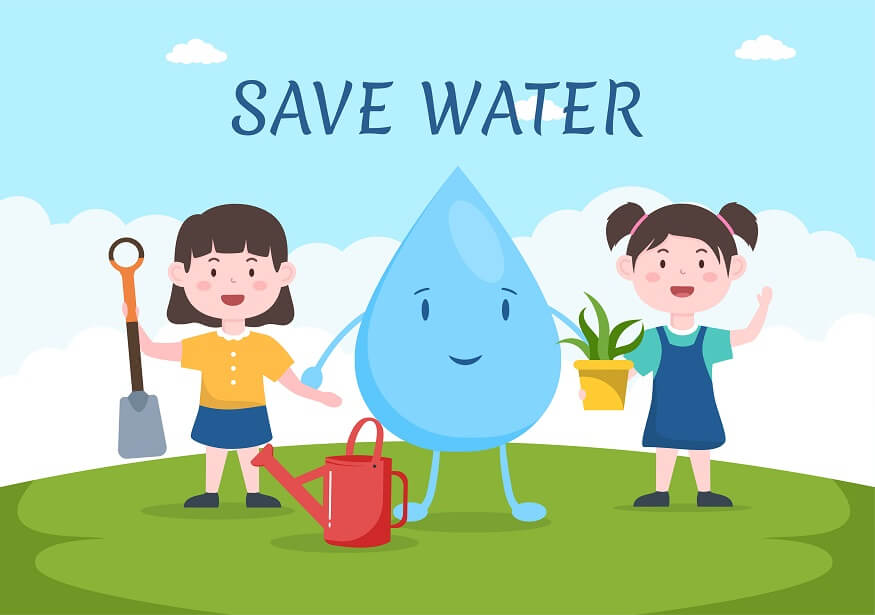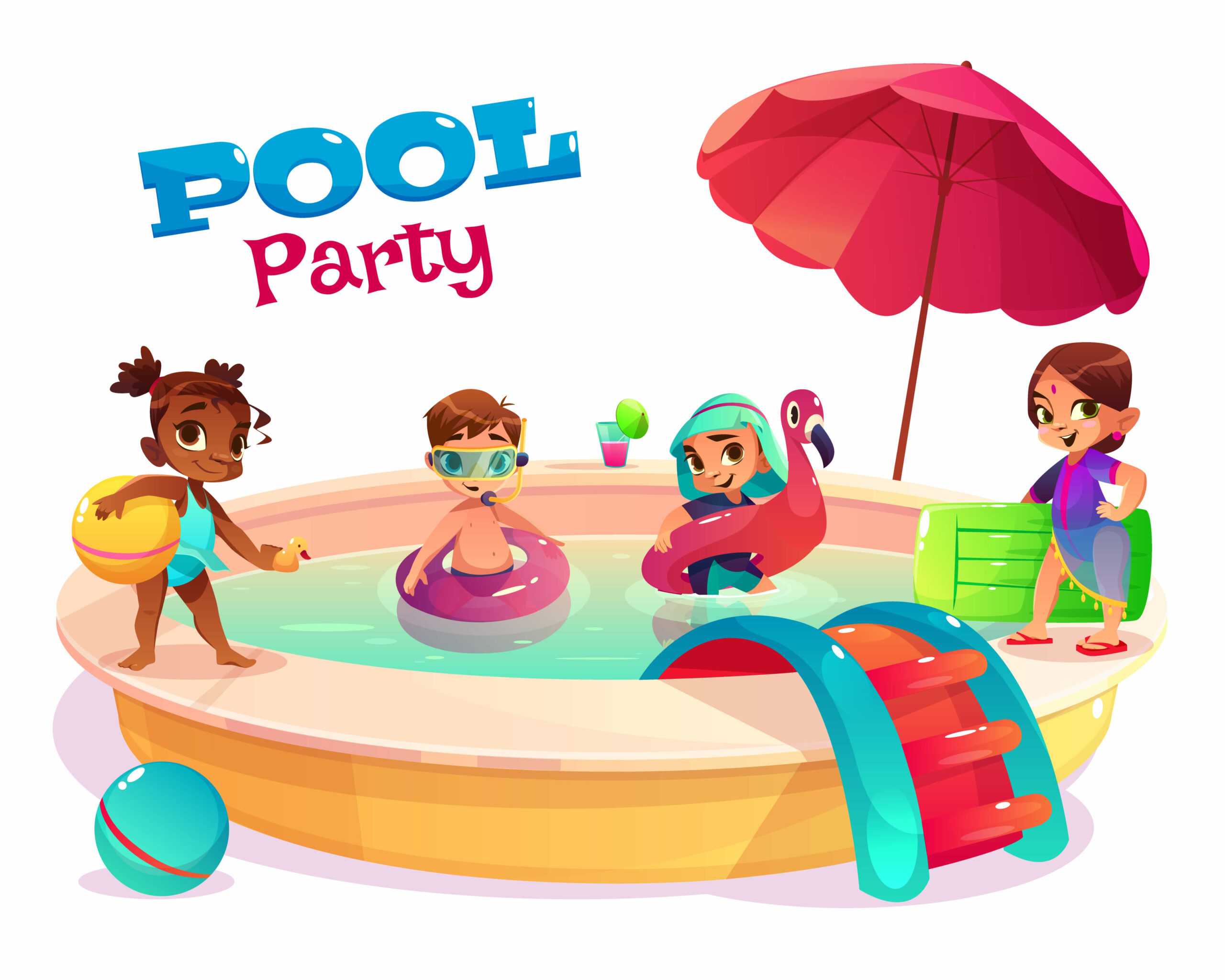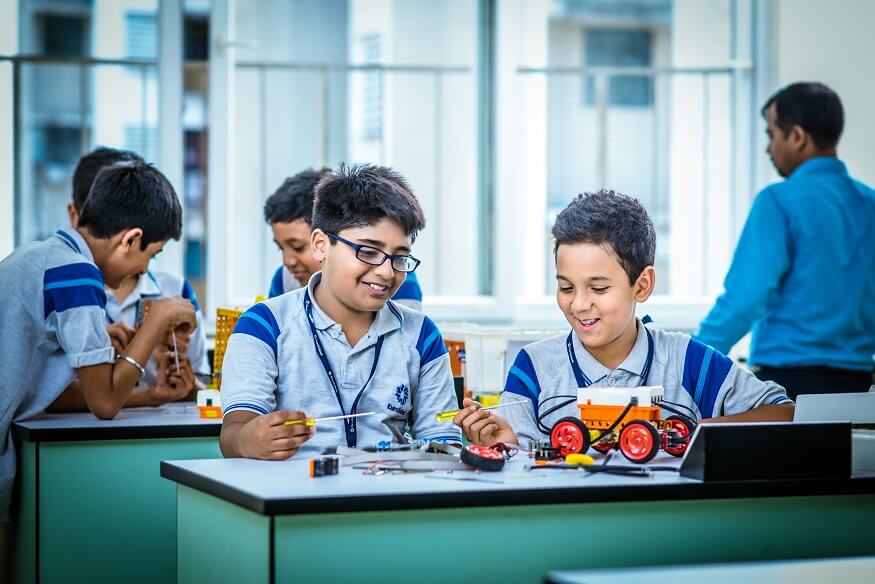Water is a chemical element composed of hydrogen and oxygen and exists in gaseous, liquid, and solid states. It is one of the most essential compounds found on earth. Its chemical formula is H₂O, and it is an inorganic compound. It is absolutely tasteless, odorless, and nearly colorless so it can be called transparent as one can see through it, and it is an essential chemical substance and Earth’s hydrosphere fluid of all known living organisms on planet earth.
So, naturally it calls for the importance of saving water. Here are some reasons why one might want to use less water or waste water:
- Save money on your power bills by using less energy to heat and pump water.
- The idea of having wastewater-treatment plants in our community can delay or prevent the expansion of costly water infrastructure and, thus, save one’s money.
- Reduce water shortage frequency and other impacts that arise due to the scarcity of water.
I guess those are quite enough reasons to lead to the importance of saving water. So now let us look at ways to save water:
- Use tap water wisely. Do not leave the water running when you are not using it, for example while brushing your teeth or while shaving.
- Do not waste water at all. Just like gold and oil, water is a commodity too, and it happens to be rather scarce nowadays. The water shortage creates huge investment opportunities just as with any other scarcity. And if so, it is a legitimate thought for each one of us; if we do not waste gold and oil, why waste water?
- Water your plants carefully. Every cell of the plant needs water for its survival. Without water, the plant cannot perform photosynthesis. Photosynthesis is the process of food production in plants, which leads to problems with respiration, translocation of food to different parts, and more. The plants that grow in too wet soil leads to plants suffering from the lack of oxygen and becomes the cause of the death of roots and a loss of vigor in the plants. It also leads to unnecessary wastage of water that is not absorbed by the plants and goes in vain.
- Do not waste food. So when discarding food which is done comparatively on a daily basis, we also throw away millions of gallons of water used to grow plants and to sustain them. Things such as fruits and vegetables that we eat are laden with water because millions of tons of water are used to grow them, even meat and poultry are the heaviest users of water because they drink a lot of water to survive like any other living organism. Ultimately the wastage of food leads to wastage of water.
- Do not waste energy. Energy usage is often associated with diverse water pollution problems. Some forms of energy usage are a by-product of solid waste. The main contributor to the emission of greenhouse gases happens due to the combustion of fossil fuels. The major cause of urban air pollution is the emission of air pollutants from fossil fuel combustion. Another problem is oil spills that happen so very often. Another theory is that when energy from the Sun reaches the Earth and warms up the atmosphere and land, water from the ocean evaporates. This energy transfer fuels the water cycle, which can be impacted by changes in the energy cycle. The movement of water from the ocean to the atmosphere to the land and back to the ocean is called the water cycle which is fueled by energy from the Sun. Now any change in the energy cycle will ripple into the water cycle.
Also Read | Memorisation Techniques for Students
These tips to save water also turn into ways of conserving water. Here are some simple Ways to Save Water especially for kids:
- Turn off the tap: by just doing so one can save as much as 4 to 8 gallons of water.
- Shower power: Taking a shower uses much less water than filling up a bathtub, also take shorter showers. Try and install water-saving shower heads. Fit low flow aerators on you taps and showers that have flow restrictors.
- Fix that leak: If there are leaks in the water outlets it is important to fix them as soon as possible to avoid wastage of water. Make it a routine to check for leaks in the house. Do not use the toilet as an ashtray or wastebasket and flush down unnecessary things. Fixing leaky taps is definitely an easy fix for reducing your water footprint.
- Be conscious: of all water outlets and turn off taps and other water outlets when not in use. Keep the sprinklers of the garden off or set timers. If you use a dishwasher ensure it is full and its use is optimized by reducing the water wastage.
Additionally, here are some tips to save water and ways of conserving water for children. Keep one glass for your drinking water or simply use a water bottle that can be refilled each day. This helps us to cut down on the number of glasses that have to be washed. Wash your fruits and vegetables in a big vessel of water instead of washing them under a running tap. Keep a pitcher or multiple pre-filled bottles of drinking water instead of running the tap so very often.
Also Read: Water Safety Tips for Kids
Here are some interesting ways of conserving water:
- Wastage of water can be reduced in the agricultural sector by increasing the efficiency of irrigation.
- Reduce the domestic water wastage.
- Recycling of the used water.
- Promote rainwater harvesting.
More water can be made available for use by constructing plants for the desalination of seawater.
Some other ways to save Water and its importance:
To save water while watering plants, ensure you use only water as much as the soil can absorb, and keep sprinklers close to the ground and set them in a way they can only deliver big drops of water. You will have to fight for tomorrow if you do not save water today. A lot of water can be saved by simply repairing any leaking faucets or other water outlets. One will never have to wander for the availability of water if they make plans to save water for the future.
At EuroSchool, we want students to learn that water is vital for all living beings to be able to maintain and sustain life on earth. It is used for basic necessities such as cooking, washing, cleaning, bathing, and irrigation. We cannot survive without it, so conserving water is important. Water not only helps humans to stay hydrated, but it also helps to fight diseases. So, by protecting drinking water resources, we save money by minimizing water pollution and other health risks. It reduces the need for costly water supply and new wastewater treatment facilities. Thus, saving water should be a lifelong habit for every child.











